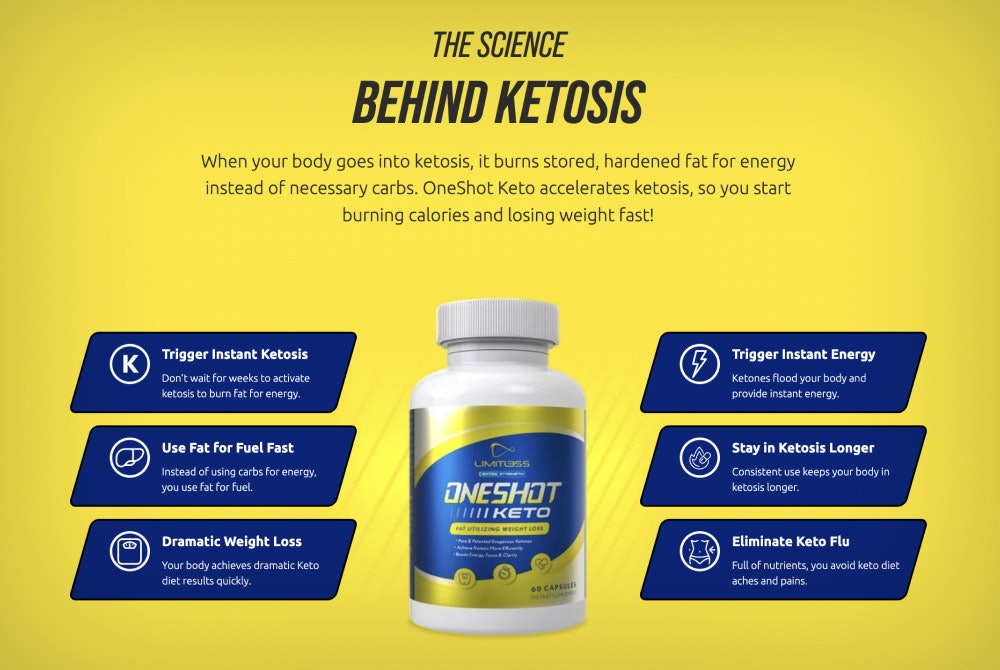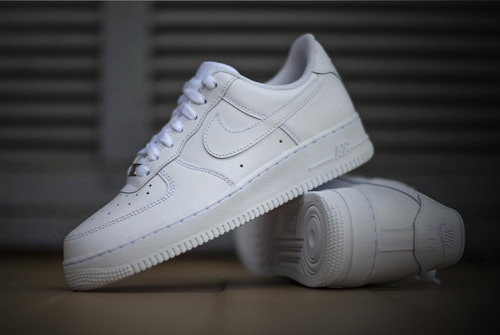- Supplements Don't Work On Their Own
- How to Choose the Right Supplement For You
- How Supplements Help You Lose Weight
- The Dangers of Weight Loss Supplements
- Taking a Supplement But Not Losing Weight?
- Are Supplements For You?
According to the World Health Organization, 2.8 million people die each year due to obesity or being overweight. With shedding pounds being a struggle for many, people turn to weight loss supplements to help them on their journeys.
We look at the truth about supplements for weight loss: what works and what doesn't. So before you start popping pills or mixing powdered drinks, read this first.
Supplements Don't Work On Their Own
The most effective weight loss supplements, checked by medical reviewer Kimberly Langdon, are those that help you burn fat and calories or suppress your appetite safely. However, supplements alone won't help you lose weight—you need a combination of a healthy diet and regular exercise for best results.
Taking supplements can be an easy way to shed some pounds without changing your diet or lifestyle. However, you must choose one that works for you and your goals to avoid harming your health and/or spending money on something that won't help you lose weight.
Exercise and a Healthy Diet are Key
Supplements should not be used as a stand-alone treatment for obesity or weight gain. Instead, you should only take them in conjunction with a balanced diet, healthy lifestyle, and regular exercise for best results.
How to Choose the Right Supplement For You
When choosing a weight loss supplement, it's essential to consider your goals and what you're hoping to achieve. If you want to lose weight quickly, choose a supplement that helps you burn fat and calories.
If you're looking for long-term results, choose a supplement that suppresses your appetite or inhibits carbohydrate absorption. Make sure you read the label and ingredients list carefully to ensure the supplement is right for you. Talk to your doctor before taking a new supplement or starting a new diet regime.
Remember, supplements are just that—supplements. They should be used in addition to a healthy diet and regular exercise, not as a replacement.
How Supplements Help You Lose Weight
Supplements are designed to target the different factors that contribute to weight gain. The most popular types include:
- Fat-burning supplements: These can be found in various forms, such as pills, powders, and shakes. They work by increasing your metabolism, which means you burn more calories even when resting.
- The One Shot Keto pill works by helping your body burn fat faster by ridding your body of excess glucose first.
- Carbohydrate blockers: Designed to stop your body from absorbing carbohydrates as fat. This can help with weight loss because it reduces the number of calories stored in your body (leading to less weight gain).
- Appetite suppressants: These supplements help reduce your hunger levels, so you eat less overall and lose weight as a result.
- Thermogenics: These are supplements that help increase the amount of heat your body produces. This, in turn, leads to increased metabolism and more calories burned.
The Dangers of Weight Loss Supplements
Note that diet pills generally get a bad rap, especially those that suppress your appetite. Some contain harmful ingredients that can cause long-term health issues, doing more harm than good.
Not all supplements are created equal—some can do more harm than good. Some ingredients to avoid include:
- Ma huang/ephedra/ephedrine/pseudoephedrine: Can cause adverse effects on the nervous system, leading to:
- High blood pressure
- Increased heart rate
- Irregular heart rhythm
- Heart attack
- Stroke
- Death
- Bitter orange/synephrine: Synephrine is similar to ephedra and can cause:
- Increased heart rate
- Headaches
- Vomiting
- Insomnia
- High blood pressure
- Fainting
- Heart attacks
- Strokes
- Sibutramine: A stimulant that can significantly increase your risk of:
- Heart attacks
- Arrhythmia
- Stroke
- Fenproporex: A stimulant that converts to amphetamine once inside your body and can be addictive while also causing heart arrhythmias and even sudden death.
- Phenolphthalein: This ingredient was found in some laxative products until the late 90s until it was deemed unsafe by the FDA.
Taking a Supplement But Not Losing Weight?
If you're taking a weight loss supplement but aren't losing any weight, a few potential causes are:
- An ineffective product
- Incorrectly taking the supplement
- Not eating enough food
- Not exercising
Diet Supplements Don't Work Overnight
Losing weight takes time, and that's not a bad thing. Losing weight fast through fad diets is not a healthy or efficient way to keep weight off in the long term. When it comes to weight loss, slow and steady wins the race.
Ineffective Product
Many products on the market today don't do what they claim to do, so it's important to be aware of this before purchasing any supplements—even those not designed for weight loss. Always check internet reviews from reputable papers such as the journal HealthCanal. Also, ask your friends or family members if they've used the product before buying it for yourself.
Incorrectly Taking the Supplement
Depending on which type of weight loss supplement you're using, there may be particular instructions that need to be followed for it to work correctly. For example, some pills should only be taken once per day, while others may require multiple doses throughout the day.
If you're unsure how to take your supplement, contact customer service or check out their website for more information. And ONLY take supplements for weight loss as directed—don't ever take more than the recommended dosage. Taking more won't equate to more weight loss.
You're Not Eating Enough
It may seem counterproductive to eat more when trying to lose weight, but you mustn't starve yourself while on a diet.
Many supplements work by increasing your metabolism and helping burn off excess fat, but they can't do that if there isn't any food in your system. So to lose weight, you'll need to be eating a healthy diet as well as exercising regularly.
Keep in mind that not everyone will experience the same results when taking supplements, so don't get discouraged if they don't work for you right away. You may just have to try a different brand or type of product until something works out better.
You're Not Exercising
Although you may lose weight by taking weight loss supplements alone, you'll see the most success if you incorporate an exercise regime. Depending on your activity levels now, you may want to start slow—start by walking for 20 minutes a day, then increase your activity you feel more comfortable.
Exercise is key to weight loss and essential for maintaining a healthy weight.
Are Supplements For You?
So, what do you think? Are weight loss supplements worth a try? If you do not see the results you want from diet and exercise alone, they just might be. But always talk to your doctor before starting any new supplement regimen, and make sure to choose one that's right for you.
With so many options on the market, it can be tough to decide which is best. If you're unsure about taking supplements, why not try a healthy diet (e.g., Mediterranean diet, keto diet) and exercise program first?
Regardless of the direction you're going, talk to your doctor first and let them help you decide on the best way forward.











Comments